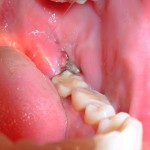
New research published today in the Lancet shows that up to one in four women prisoners in England and Wales self-harm every year. The largest study of self-harm in prisons also reports that female prisoners are four times more likely to self-harm than male inmates. Previous systematic reviews have investigated self-harm in prisons (Lohner, 2007 and Dixon-Gordon, [read the full story…]











